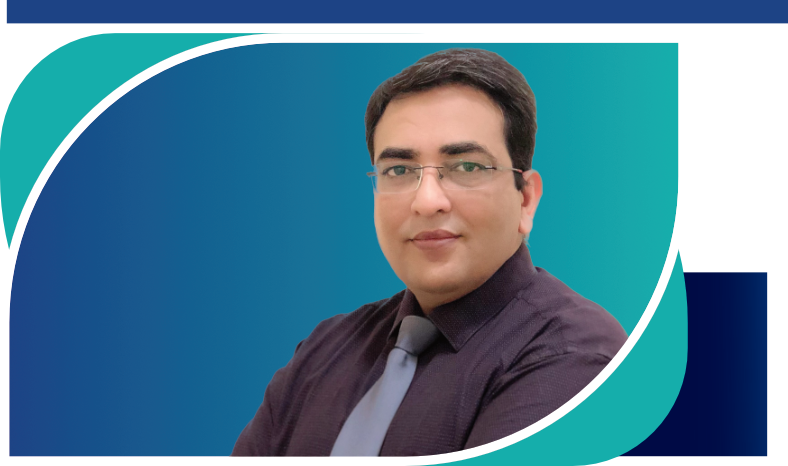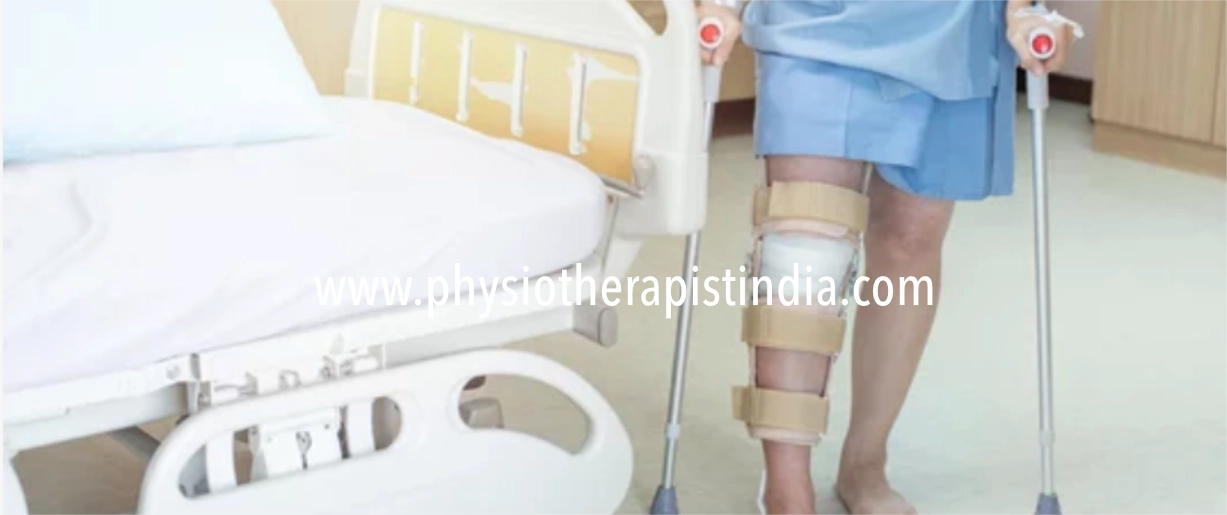Start your Recovery Journey Now
Best Physiotherapy Centre in Dwarka
Welcome to the leading physiotherapy centre in Dwarka, Delhi, where excellence in care meets compassionate service. We are committed to helping you achieve optimal health and wellness through personalized rehabilitation programs tailored to your unique needs.
Start your Recovery Journey Now
23 Years Of Professional Excellence
Our team’s expertise, compassion, and commitment to patient-centered care ensure that you receive the best possible treatment and support on your path to improved physical well-being
+91-9818911195
Call Us/WhatsApp to Know More
Best Physiotherapist in Dwarka, Delhi
Our team of highly skilled and experienced physiotherapists is dedicated to providing the highest quality of care. With a reputation for excellence spanning over three decades, we are proud to be recognized as the best physiotherapists in Dwarka, Delhi. Our commitment to ongoing education and training ensures that we stay at the forefront of the latest advancements in physiotherapy.
Start your Recovery Journey Now
Conditions We Treat








NEUROLOGICAL CONDITIONS
We treat wide range of neurological disorders and paralysis caused by neurological problems such as stroke, spinal cord injury, head injury.

STROKE & PARALYSIS
Stroke and paralysis rehabilitation emphasizes personalized care to help individuals regain mobility, independence, and quality of life following neurological challenges. Through tailored therapies and expert guidance, our team supports patients in achieving meaningful recovery milestones and maximizing their potential.
HEAD/BRAIN IN JURY
Head injuries can result in a wide range of cognitive and physical impairments, impacting memory, coordination, and communication. Rehabilitation strategies often involve neurorehabilitation techniques, such as cognitive therapy and physical exercises, to promote recovery and enhance functional abilities. Early intervention and personalized treatment plans are crucial in optimizing outcomes for individuals with head injuries.
SPINAL CORD INJURY
Spinal cord injuries can lead to varying degrees of paralysis and loss of sensation below the injury site. Rehabilitation focuses on maximizing independence and quality of life through specialized therapies, assistive devices, and adaptive techniques. Multidisciplinary teams, including physiatrists, physical therapists, and occupational therapists, collaborate to address the unique challenges and goals of each individual with a spinal cord injury.
BALANCE IMPAIRMENTS
Balance impairment can arise from various factors, such as neurological conditions, musculoskeletal issues, or vestibular dysfunction, leading to increased fall risk and decreased mobility. Rehabilitation strategies target underlying causes through exercises, balance training, and proprioceptive techniques to enhance stability and prevent falls. Multidisciplinary approaches often incorporate physical therapy, occupational therapy, and sometimes assistive devices to optimize balance and restore confidence in daily activities.
MULTIPLE SCLEROSIS
Rehabilitation for multiple sclerosis (MS) targets symptom management and functional improvement through physical therapy, occupational therapy, and speech therapy. This multidisciplinary approach aims to enhance mobility, address cognitive challenges, and support daily activities, promoting independence and overall well-being for individuals living with MS.
PARKINSON'S DISEASE
Rehabilitation for Parkinson’s disease targets symptom management and quality of life enhancement through focused exercises, mobility training, and speech therapy interventions. Collaborative efforts among physical therapists, occupational therapists, and speech-language pathologists aim to address both motor and non-motor symptoms, fostering independence and optimizing functional abilities.
COORDINATION PROBLEMS
Coordination problems can stem from various causes, including neurological disorders or musculoskeletal issues, impairing movement and balance. Rehabilitation strategies involve targeted exercises, coordination training, and proprioceptive techniques to enhance motor control and spatial awareness. Multidisciplinary approaches, incorporating physical and occupational therapies, aim to address underlying issues and improve coordination, facilitating smoother movement and daily function.
BELL'S PALSY/ FACIAL PARALYSIS
Bell’s palsy is a condition characterized by sudden weakness or paralysis of facial muscles, typically on one side of the face. Rehabilitation focuses on restoring facial muscle function through techniques like facial exercises, massage, and electrical stimulation. Speech therapy may also be employed to address difficulties with articulation and swallowing, aiding in the recovery process. Multidisciplinary support helps individuals regain facial symmetry and function, improving quality of life.
VERTIGO AND DIZZINESS
Vertigo and dizziness can arise from various inner ear disorders or neurological conditions, causing a sensation of spinning or imbalance. Rehabilitation involves vestibular rehabilitation therapy (VRT), which includes exercises and maneuvers to retrain the brain’s response to balance cues. Additionally, lifestyle modifications and medication management may be incorporated to alleviate symptoms and improve overall quality of life. Multidisciplinary collaboration among vestibular specialists, physical therapists, and otolaryngologists is essential for personalized treatment plans tailored to individual needs.
ORTHOPEDIC CONDITIONS

BACK PAIN
MECHANICAL BACK PAIN
Back pain can result from various causes and is managed with a combination of physical therapy, pain management, and lifestyle modifications.
PIRIFORMIS SYNDROME
Piriformis syndrome involves compression of the sciatic nerve, managed with stretching, strengthening, and sometimes corticosteroid injections.
SCIATICA PAIN
Sciatica pain, caused by compression of the sciatic nerve, is managed with rest, ice, stretching, and physical therapy.
SPONDYLITIS, SPONDYLOSIS, SPONDYLOLISTHESIS
Spondylitis, spondylosis, and spondylolisthesis are spine disorders managed with physical therapy, pain management, and sometimes surgery.
NECK PAIN
POSTURAL NECK PAIN
Neck pain is often treated with physical therapy, stretching, posture correction, and pain management techniques.
CERVICOGENIC HEADACHE
Cervicogenic headaches originate from the neck and are treated with physical therapy, posture correction, and pain management techniques.
THORACIC OUTLET SYNDROME
Thoracic outlet syndrome causes arm and hand symptoms, managed with physical therapy, posture correction, and sometimes surgery.
SHOULDER PAIN
FROZEN SHOULDER
Frozen shoulder causes stiffness and limited range of motion, managed with physical therapy, stretching, and sometimes corticosteroid injections.
ROTATOR CUFF SYNDROME
Rotator cuff syndrome, involving shoulder pain and weakness, is managed with rest, ice, physical therapy, and sometimes surgery.
SHOULDER IMPINGEMENT
Shoulder impingement involves shoulder pain with overhead activities, managed with rest, ice, physical therapy, and sometimes corticosteroid injections.
KNEE PAIN
ACL INJURY
ACL injuries often require surgical reconstruction followed by physiotherapy to restore knee stability and function.
CHONDROMALACIA PATELLA
Chondromalacia patellae involves cartilage damage behind the kneecap, managed with physical therapy, strengthening exercises, and activity modification.
JUMPER’S KNEE
Jumper’s knee, or patellar tendinitis, causes pain in the front of the knee, managed with rest, ice, stretching, and strengthening exercises.
MENISCUS TEAR
Meniscus tears, common knee injuries, may require surgery or conservative treatment like rest, ice, and physical therapy.
RUNNER’S KNEE
Runner’s knee, or patellofemoral pain syndrome, causes knee pain during activities, managed with rest, ice, strengthening exercises, and activity modification.
TENDINITIS AND TENDON TEARS
Tendinitis and tendon tears involve inflammation or damage to tendons, managed with rest, ice, stretching, strengthening exercises, and sometimes surgery.
TORN ACL/MCL LIGAMENTS
Torn ACL/MCL ligaments are treated with surgical reconstruction followed by physiotherapy to restore knee function.
ELBOW AND WRIST PAIN
GOLFER’S ELBOW
Golfer’s elbow, or medial epicondylitis, involves pain and inflammation on the inner side of the elbow, managed with rest, ice, and physical therapy.
REPETITIVE STRESS INJURIES
Repetitive stress injuries result from overuse, managed with rest, activity modification, ergonomic changes, and physical therapy.
BURSITIS
Bursitis, characterized by inflammation of the bursae, often improves with rest, ice, anti-inflammatory medication, and physical therapy.
CARPAL TUNNEL SYNDROME
Carpal tunnel syndrome causes wrist pain and numbness, managed with splinting, ergonomic modifications, and sometimes surgery.
ANKLE PAIN
ANKLE SPRAIN
Ankle sprains are treated with rest, ice, compression, elevation, and physiotherapy to restore strength and range of motion.
PLANTAR FASCIITIS
Plantar fasciitis causes heel pain, managed with rest, ice, stretching, orthotics, and physical therapy.
ACHILLES TENDINITIS
Achilles tendinitis involves inflammation of the Achilles tendon, treated with rest, ice, stretching, and strengthening exercises.
POST ORTHOPEDIC SURGRY
KNEE REPLACEMENT
Knee replacements involve surgical replacement of damaged knee joints, followed by rehabilitation to restore mobility and function.
HIP REPLACEMENT
Hip replacements involve surgical replacement of damaged hip joints, followed by rehabilitation to restore mobility and function.
ROTATOR CUFF REPAIR
Rotator cuff repair involves surgical repair of torn rotator cuff tendons, followed by physiotherapy to restore shoulder strength and mobility.
SLAP TEARS
SLAP tears, or labral tears in the shoulder, may require surgical repair followed by physiotherapy to restore shoulder function.
WOMEN'S HEALTH ISSUES

ANTENATAL CARE
Antenatal care refers to medical and supportive care provided to pregnant individuals before childbirth, including regular check-ups, prenatal testing, and education on pregnancy, childbirth, and infant care.
POSTNATAL CARE
Postnatal care involves medical and supportive care provided to individuals and their newborns after childbirth, including monitoring maternal and infant health, breastfeeding support, and guidance on newborn care and parenting.
SPINNING BABY
Spinning Baby refers to a set of techniques and exercises designed to encourage optimal fetal positioning during pregnancy and labor, potentially reducing the risk of complications during childbirth.
DIASTASIS RECTI
Diastasis recti is a condition characterized by the separation of the abdominal muscles, commonly occurring during and after pregnancy. Rehabilitation may involve targeted exercises and physical therapy to strengthen the abdominal muscles and improve core stability.
VAGINISMUS
Vaginismus is a condition characterized by involuntary contraction of the muscles surrounding the vagina, leading to pain and discomfort during vaginal penetration. Treatment may involve pelvic floor physical therapy, counseling, and gradual desensitization exercises to address underlying psychological and physical factors.
URINARY INCONTINENCE
Urinary incontinence refers to the involuntary loss of urine, which can occur due to various factors, including pregnancy and childbirth. Management may involve pelvic floor exercises, lifestyle modifications, and in some cases, medical interventions or surgery to improve bladder control.
Our Treatment Process
Committed To Keep People Healthy & Safe
Our treatment process begins with a thorough assessment, followed by the creation of a personalized plan tailored to your needs. Through active rehabilitation, incorporating various evidence-based techniques, we work to promote healing and improve function. Continuous support and guidance are provided to ensure long-term success.
We start by having a thorough conversation with you about your medical history and any issues you’re experiencing. This helps us understand your unique situation.
We use state-of-the-art software and technology to analyze how your body moves and functions. This gives us a detailed picture of what might be causing your discomfort.
Based on what we find during the assessment, we create a personalized plan just for you. Our goal is to help you achieve specific outcomes, whether it’s reducing pain, improving mobility, or something else.
During your sessions with us, we use a combination of advanced technology and hands-on techniques to address your needs. This might include using special equipment or providing manual therapy to target problem areas.
We keep a close eye on how you’re doing throughout your treatment. By regularly checking your progress, we can make sure you’re on the right track and make any necessary adjustments to your plan.
Once you’ve made significant progress and reached your goals, we’ll guide you through a final session. Here, we’ll provide you with a customized digital exercise program that you can continue at home.
Even after your sessions with us are complete, we’re still here to support you. We offer virtual and online follow-up appointments to check in, answer any questions you may have, and provide ongoing guidance as needed.
At Best Physiotherapy Centre in Dwarka We Follow Best Practices
Why Choose Us
We offer personalized care, crafting customized treatment plans based on your unique needs and goals. With expertise in physiotherapy and a holistic approach to healing, our team ensures comprehensive care that addresses both physical and emotional aspects of recovery.
- Personalized Care
- Experienced Professionals
- Expertise & Best Practices
- Holistic Approach
- Latest Technology
Our state-of-the-art facility is equipped with the latest technology and advanced equipment to ensure the highest quality of care. From modern therapy rooms to cutting-edge rehabilitation tools, we provide a comfortable and conducive environment for your healing journey.
Our Facility - At Physiotherapy Center in Dwarka
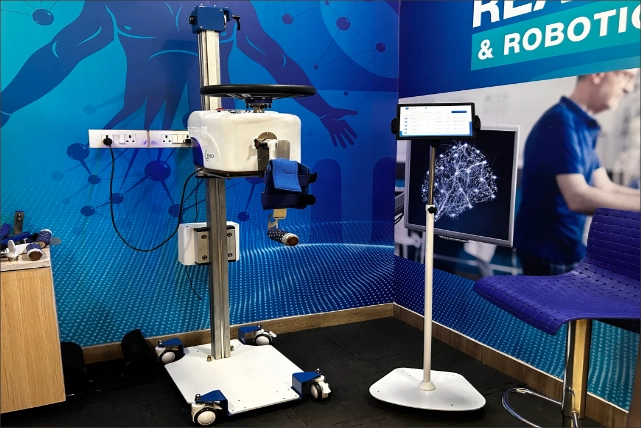
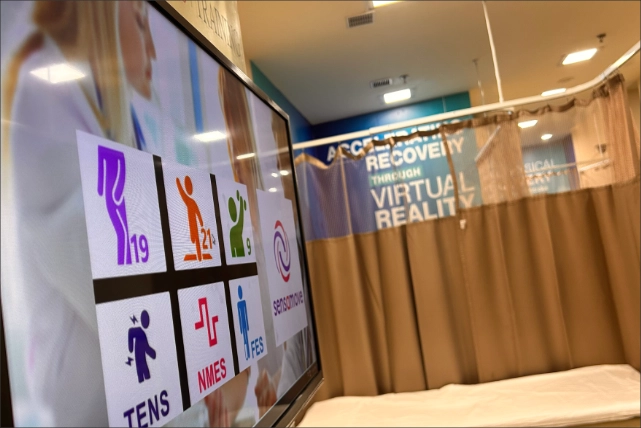

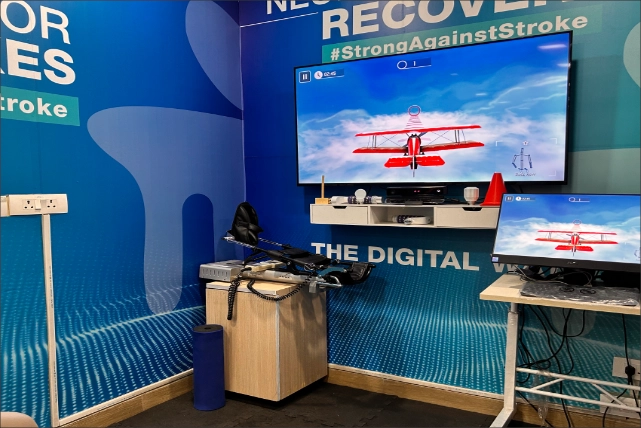
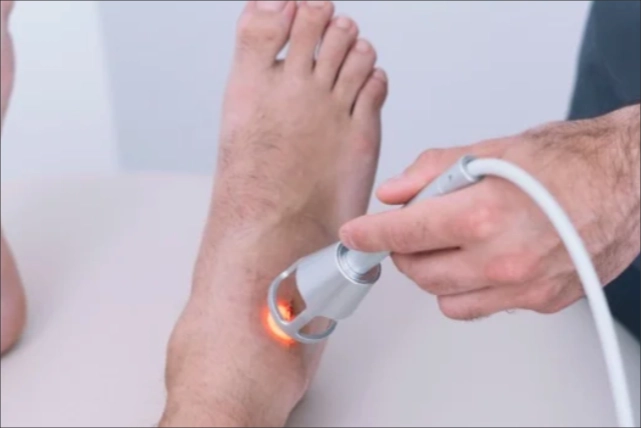
Meet the team Who Care
We Are Leading Physiotherapy & Rehabilition Service Provider in Delhi
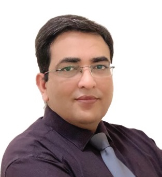
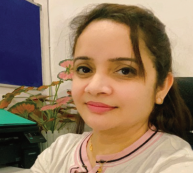




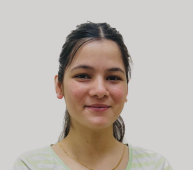

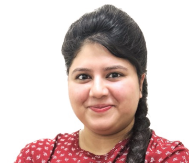



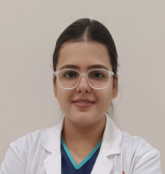

What People Say Abot Us
Testimonials

Himani Kalawat
Himani Kalawat
I recently completed a physiotherapy treatment at Dr. Dharam Pandey & Team for my ankle sprain. I was very happy with the care I received. The therapists were knowledgeable and friendly, and they made sure that I was comfortable during my treatments. The variety of new exercises done helped me with my recovery and made the session more interesting. I highly recommend all patients to opt their services if looking for a relief through physiotherapy. Best Physiotherapist in Dwarka.

Kapil Arora
Kapil Arora
Dr. Dharam is very professional and gives utmost attention in understanding the problem, defining the solution charter and directing the staff on how to treat the patient. The staff is also very good, very well behaved, thoroughly professional and make all the efforts to treat you in the best possible manner.Very much satisfied till now and it’s showing good improvement to me should rehabilitation case.

Ashutosh Sharma
Ashutosh Sharma
It was an amazing experience with Dr. Dharam Pandey and team. They were dedicatedly doing their work. They are perfectionist of their field. Had a good experience with Dr.Ravikant and his fellow members they are properly taking care of everything while effectively helping the patient in doing exercises and all. Thanks again and keep up the good work. ☺️👍

Shubhangi Gupta
Shubhangi Gupta
All the staff, Doctors and facilities are awesome 💯. All the doctors are highly skilled and very professional. They all made me to walk again. Thanks a lot. Special thanks to Ritu mam. She is very professional. It was a great experience. Thank you everyone for your services ❤️ Happy New year in advance.
Dr. Dharam Pandey and Team
Have Questions or Need Assistance?
Don’t hesitate to reach out to us:
Book Appointment with Experts
- Call/WhatsApp: +9818911195 with Experts
We are here to lend our support on your journey toward improved movement and overall well-being.
Frequently asked Questions
Have Questions or Need Assistance? Don’t hesitate to reach out to us:
Our services are designed to address a wide range of conditions, including musculoskeletal injuries, neurological disorders, women’s health concerns, and workplace-related musculoskeletal issues.
During your initial assessment, our experts will evaluate your condition, discuss your goals, and create a personalized treatment plan. You’ll have the opportunity to ask any questions you may have.
The duration of your treatment process can vary depending on your specific condition and goals. Some individuals may require shorter treatment periods, while others with more complex issues may need longer-term care.
Yes, we can provide home-based rehabilitation services for patients who may have mobility limitations or other circumstances that prevent them from visiting our facility.
Advanced technology enhances the effectiveness of treatments, allows for more precise diagnostics, and often accelerates the recovery process.
Absolutely. Our best physiotherapist in Delhi experts will provide you with exercises and guidelines to continue your treatment at home, which can contribute to faster and more effective recovery.
To schedule an appointment or inquire about our services, you can visit our website, or contact us via phone at +91-9818911195. Our friendly staff will assist you promptly.

